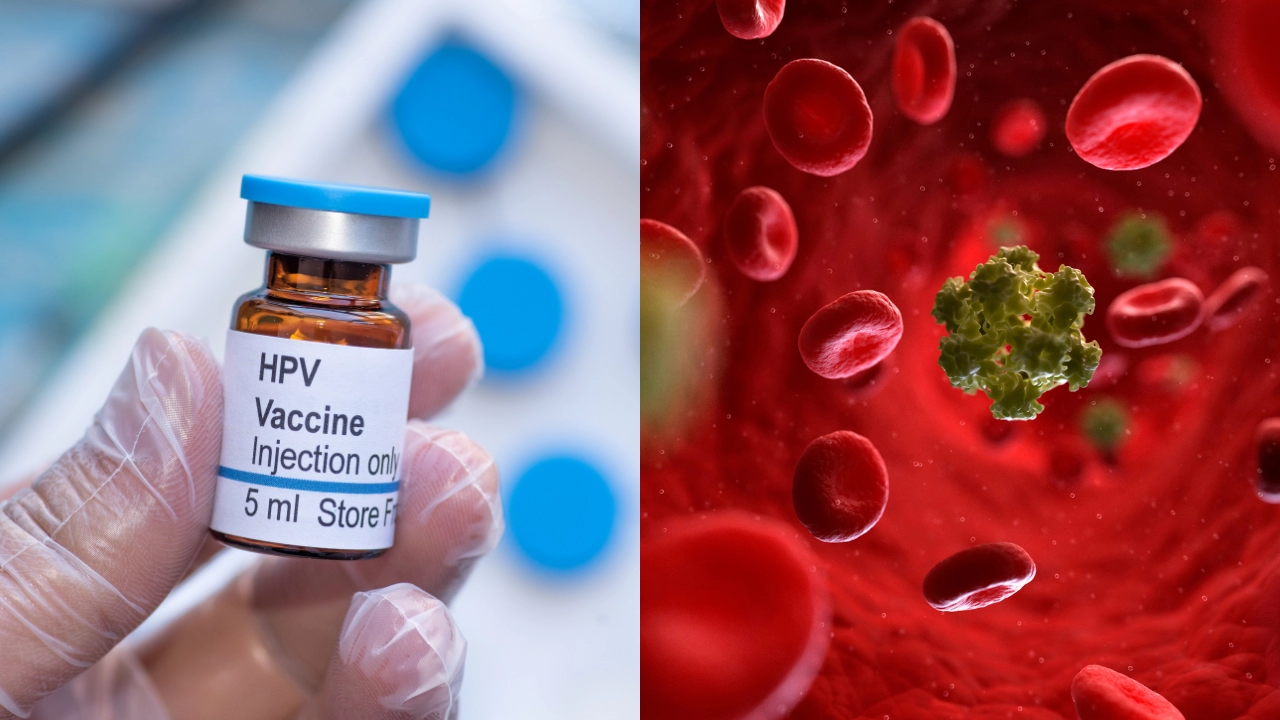Supriya Ramesh • 18 Sep 2024
Understanding HPV: Experts Weigh In On Its Risks, Prevention, and Health Impacts

Image - Canva
Human papillomavirus (HPV) is a highly prevalent virus with significant health implications, particularly as it relates to cancer development. It is a common virus that can infect various parts of the body, including the genitals, throat, and mouth. We spoke to experts to gain insights into HPV, its transmission, its potential to cause cancer, prevention measures, and long-term health effects. Dr Mohit Saxena, Consultant and HOD of Medical Oncology at Manipal Hospital, and Dr Sonam Gupta, Senior Consultant and Head of Obs & Gynae at Asian Hospital shed light on these questions.
What is HPV and how is it transmitted?
According to Dr Sonam Gupta, there are over 100 different strains of HPV, and about 30 can infect the genital area, affecting the vulva, vagina, cervix, penis, scrotum, rectum, and anus. HPV is primarily transmitted through intimate skin-to-skin contact, including vaginal, anal, and oral sex. It can also spread through genital contact without penetration, and in rare cases, through shared objects or direct skin contact.
Dr Gupta said that approximately 6.6% of women in the general population carry cervical HPV infection, with certain serotypes—particularly types 16 and 18—accounting for about 76.7% of cervical cancer cases in India. Engaging in sexual activity at a young age or having multiple sexual partners increases the risk of contracting a high-risk strain of HPV.
Can HPV lead to cancer?
HPV is a significant contributor to various cancers, particularly cervical cancer. Dr Mohit Saxena explained that HPV is responsible for over 70% of cervical cancers. This type of cancer is highly preventable through vaccination and can be detected early with routine Pap tests or HPV tests. In addition to cervical cancer, HPV is associated with other types of cancer, including:
- Oral and oropharyngeal cancer: These cancers, especially prevalent in men, occur in the throat and oral region.
- Anal cancer: HPV increases the risk of anal cancer in both men and women, especially those with HIV or those who engage in receptive anal intercourse.
- Vaginal and vulvar cancers: Though less common, HPV is a known cause of vaginal and vulvar cancers.
- Penile cancer: HPV can also cause penile cancer, particularly in men who have HIV or engage in homosexual contact.
Symptoms of HPV infection
Most HPV infections are asymptomatic, particularly those that affect the genital area. However, Dr Gupta said that when symptoms do occur, the most common indicator is the appearance of genital warts. These warts are small, cauliflower-like bumps that can appear weeks or even years after contracting the virus. Though infectious, genital warts are generally harmless.
Infections caused by high-risk strains of HPV often do not present symptoms until they have progressed to more serious conditions like cancer, making regular screenings crucial.
Prevention and vaccination
One of the most effective ways to prevent HPV-related cancers is through vaccination. Dr Saxena said that HPV vaccines can prevent over 90% of cancers related to the virus. The vaccine is most effective when administered before an individual’s first exposure to the virus, typically recommended for preteens between the ages of 11 and 26.
While condoms offer some protection against HPV, they do not provide full coverage, as not all genital skin is protected. Regular screening is another key preventive measure, especially for cervical cancer. Routine Pap tests and HPV tests can detect early changes in cervical cells, allowing for timely intervention before cancer develops.
Treatment
While most HPV infections are cleared by the immune system within two years without causing health problems, there is no cure for the virus itself. According to Dr Saxena, treatment focuses on managing the health issues associated with HPV, such as genital warts and precancerous changes in cells. Medications can be used to remove genital warts, though they may recur.
For precancerous cell changes, treatments vary depending on the location and severity of the changes. Regular screenings, such as Pap tests, are crucial for early detection and intervention, significantly reducing the risk of cancer development.
Long-term health effects of untreated HPV
The long-term health effects of untreated HPV depend on the type of HPV and the individual's immune response. Most infections resolve without causing serious health issues. However, persistent infection with high-risk strains of HPV can lead to several types of cancer, as mentioned earlier. Dr Saxena said that while not everyone infected with high-risk HPV will develop cancer, regular screenings and early detection are vital in preventing HPV-related cancers.
Effect of HPV on men and women
HPV affects both men and women, but its impact is more severe in women, particularly in relation to cervical cancer. Dr Saxena explains that the difference in cancer risk between men and women is largely due to biological factors and the way the female immune system responds to the virus. While men can develop cancers of the anus, penis, and throat, women are at higher risk for cancers of the cervix, vulva, and vagina.
Get Latest News Live on Times Now along with Breaking News and Top Headlines from Health and around the world.